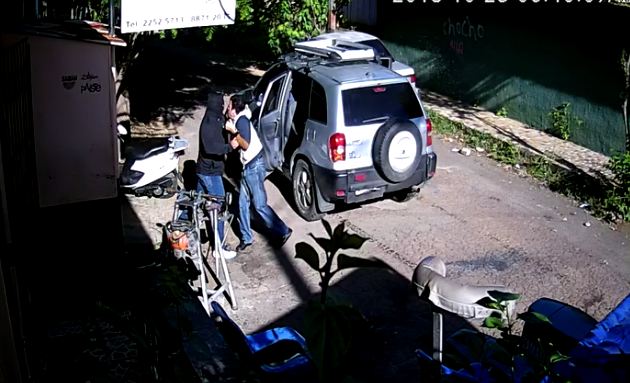Nicaraguan President Daniel Ortega’s dictatorship has proved to be more lethal against citizen protesters than Nicolás Maduro’s in Venezuela, not only because it has caused more fatalities, but because it has filled prisons with more political prisoners in less time.
The Nicaraguan Center for Human Rights (CENIDH) has registered 600 political prisoners since protests began in April.
Of those detainees, 431 already face trials in the courts, which human rights organizations have denounced as being subverted — among other reasons, because citizens were detained by the Ortega Police (OP) and regime paramilitaries without a court order.
In addition, families of political prisoners have reported that the detained have suffered torture and mistreatment in prisons. Defense lawyers say due process is not being respected and that judges act as executioners of the dictatorship.
The CENIDH said 61 citizens have been punished by Ortega judges — 55 men and six women — with sentences ranging from six to 90 years in prison.
Higher numbers than Maduro
The 600 political prisoners of Daniel Ortega and Rosario Murillo’s regime are twice as many as the number imprisoned by their Venezuela. The Chavez regime had 243 political prisoners as of last August, according to reports from the Venezuelan Criminal Forum, data that has been certified by the Organization of American States (OAS).
In Venezuela, there are political prisoners who have been incarcerated for up to 15 years. Some who have served sentences imposed by the Maduro government — in power since 2013, after the death of Hugo Chávez, who governed since 1999 — are still imprisoned.
In Nicaragua, political prisoners have accumulated in more than 200 days of sociopolitical crisis. Many were captured for protesting against the repression of the Ortega-Murillo regime, which has killed more than 500 Nicaraguans and injured more than 4,000 people.
The National Blue and White Unity (UNAB) — which groups more than 40 organizations including students, farmers, businessmen, civil societies, political parties and academics — at the beginning of November reported 552 political prisoners. As of Nov. 14, prisons continue to be filled with political prisoners, according to CENIDH figures.
However, the Ortega regime only recognizes 273 political prisoners, whom they call “terrorist and coup prisoners.”
Ortega is more lethal
Carlos Tünnermann, a member of the UNAB, said the number of deaths and imprisoned people shows that the repression of Ortega and Murillo “is more lethal” than the one applied by Maduro against the Venezuelan people.
Tünnermann said that during the most tense moments of the repression against the protests in Venezuela in 2017, the death toll was 163. According to data from the Venezuelan Observatory of Social Conflict, most of these deaths occurred between March 31 and Aug. 12, 2017.
“Here [in Nicaragua] in two months of protests there were more than 160 deaths, a figure that has not stopped increasing. At the end of seven months of protest, there are more than 400 dead. Every day, there are two to three new arrests,” Tünnermann said.
This, he said, is what would reveal is that the repression in Nicaragua has been more lethal. Ortega appears to fill jails faster, and it is not known if that is to later offer prisoners in exchange for his amnesty.
Where are the political prisoners?
The CENIDH in its recent report detailed that of the 602 political prisoners of the Ortega regime, 586 are in the country’s prisons and 14 are under house arrest, among which there are 10 adolescents under 18 years old.
The largest number of political prisoners, 335, are held in the penitentiary system for men, and 17 women are held in La Esperanza prison. In the El Chipote prison, there are 189 citizens illegally detained only for opposing the regime, according to CENIDH. Another 45 citizens are imprisoned in the district, municipal and departmental delegations of the Ortega Police.
Tünnermann reiterated that Ortega must understand that the repression worsens the crisis in Nicaragua and deepens its international isolation.
“He is warned of the laws that entail economic sanctions against his regime that are being processed in the United States, will be approved before the end of this term, and it is absurd that he chooses repression and not the democratic way,” he said.

Read the original story in Spanish at La Prensa, first published on Nov. 17 2018.
This story was translated into English and republished in The Tico Times as part of a partnership with La Prensa to help bring their coverage of the Nicaraguan crisis to an English-speaking audience.






